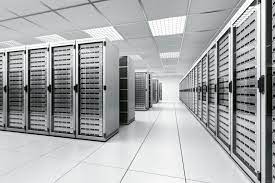A strong disaster recovery (DR) strategy is like a lifeboat that safeguards a business’s crucial assets to continue operations. The cost of building a backup site is far higher than the cost of employing colocation data centers. One crucial aspect that eventually keeps a business from going out of business is maintaining a disaster recovery plan.
A Nationwide survey found that 68% of small firms lack a written DR plan. While retaining control over its DR policy, IT setup, and software, enterprises can greatly reduce the risk of data loss by working with a colocation data center.
Colocation centers are in a unique position to provide the knowledge required to uphold defined DR policies and businesses of all sizes need a solid DR plan to ensure their business continuity under any conditions.
Although the environment in which we live is uncertain your businesses can survive any storm if they have the appropriate partner.
The server colocation UK explores how partnering with colocation providers can assist businesses in obtaining the support they require, including strategic geographic positioning, dependable and sustainable power infrastructure, expert remote assistance services, and flexible sizing as DR capacity.
What is Disaster Recovery?
Disaster recovery is the process of restoring systems, applications, and data after a disaster or interruption, such as a natural disaster, cyberattack, or human error. The goal of disaster recovery is to minimize the impact of an outage on an organization and its customers and to quickly resume normal operations.
What is Business Continuity?
Business continuity refers to the ability of an organization to maintain its essential functions and operations during and after a disruptive event, such as a natural disaster, cyberattack, or human error. The goal of business continuity planning is to ensure that an organization is able to quickly recover from an interruption and resume normal operations with minimal disruption to its customers’ employees and stakeholders. This is achieved through the development of processes, procedures, and technology systems to mitigate risks, minimize downtime, and maintain essential operations.
How Colocation Data Centers Support Disaster Recovery And Business Continuity
Colocation data centers can be crucial to disaster recovery and business continuity by providing a secure and stable backup location for an organization’s IT infrastructure. In the event of a disaster or other unplanned downtime, the business can quickly migrate to the colocation data center and continue working regularly. Colocation data centers can help with business continuity and disaster recovery in the following ways:
Redundant Power and Connectivity: Colocation data centers usually have redundant connectivity choices in addition to various power sources to ensure that the IT infrastructure keeps working even in the event of a network outage or power failure.
Physical Security: Colocation data centers are equipped with strong physical security elements including security cameras, access control systems, and biometric authentication to prevent unauthorized access to the IT infrastructure.
Environmental Controls: Colocation data centers use specialized environmental controls, such as temperature and humidity control, to maintain the IT infrastructure in a regulated environment.
Remote Access: Remote access solutions are frequently offered by colocation data centers, allowing businesses to access their IT infrastructure at any time and from any location. This gives them the flexibility to react to crisis situations swiftly and effectively.
Data replication and backup: Colocation data centers provide data replication and backup options, ensuring that critical data is protected and can be quickly restored in the event of a disaster.
Redundant Infrastructure: Data centers have multiple layers of redundancy built into their infrastructure, including backup power systems, multiple network connections, and backup servers, to ensure that even in the event of a failure, data is still accessible and systems remain up and running.
Expertise: Data center providers have a team of experts who are trained in data recovery and business continuity and are equipped to handle any issues that may arise.
Compliance: Data centers often follow strict compliance regulations, such as HIPAA and PCI, to ensure the confidentiality and security of sensitive data.
Boost your Business continuity and Data recovery with server colocation UK
To ensure the success of your firm, you must have IT resiliency. Natural disasters and outages can cause your business to lose a lot of money and clients. And if you don’t deal with disasters as soon as they occur, they might damage your reputation.
Server colocation UK offers IT robustness to businesses of all sizes with our specialized solutions. A business continuity and data recovery plan that can ensure uptime can be developed and implemented with the help of our team of skilled data center specialists. Every one of our buildings was specifically created to withstand hostile environments for the security of our customer’s IT infrastructure. Additionally, we ensure that no staff could harm our systems by limiting access to our colocation floor.

